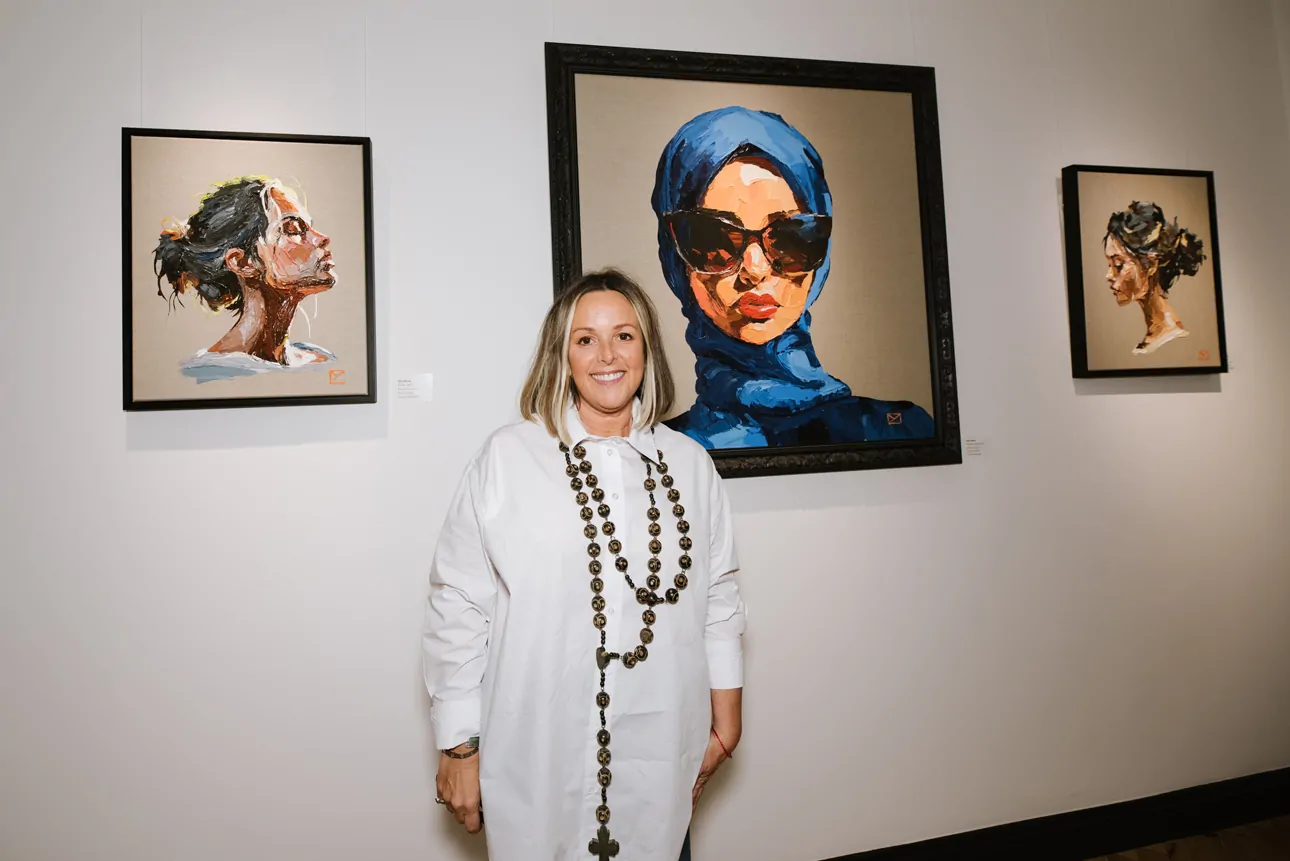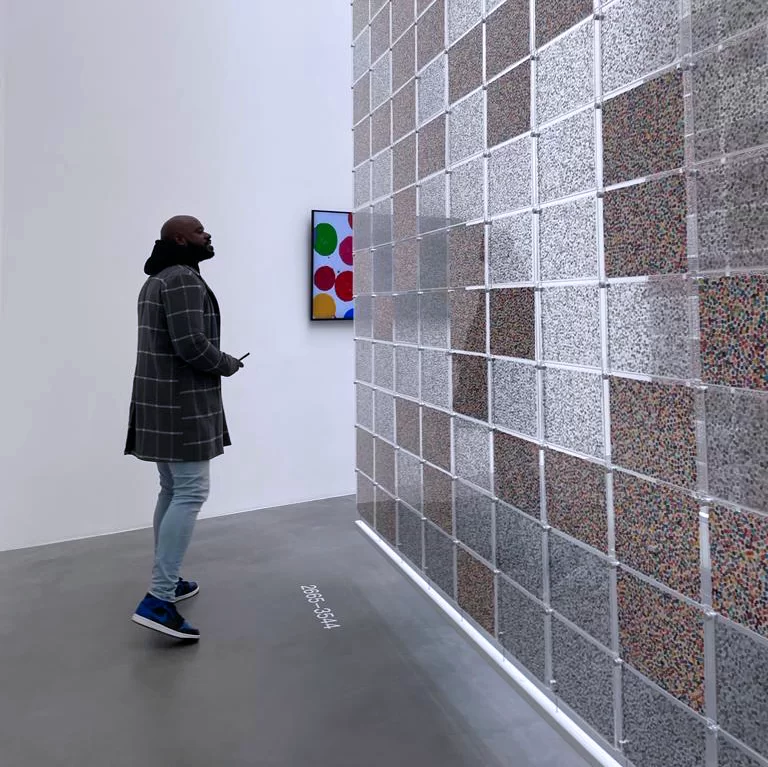Five years ago, Alexandra Johnson was painting alone in her kitchen — children napping, the world locked down, grief still heavy in the air. There was no gallery representation, no auction buzz, no artist statement. Just paint, silence, and the steady scrape of a palette knife across canvas.
Today, under the moniker Zara Muse, known for her thickly layered, palette-knife paintings — all sculptural dimension and saturated colour — Johnson’s work has found its way into luxury hotel lobbies, the hands of private collectors from Mayfair to Hollywood, as well as auction houses like Tate Ward and, most recently, Bonhams, where Muse’s portrait of Malala Yousafzai went under the hammer for £51,000.00.
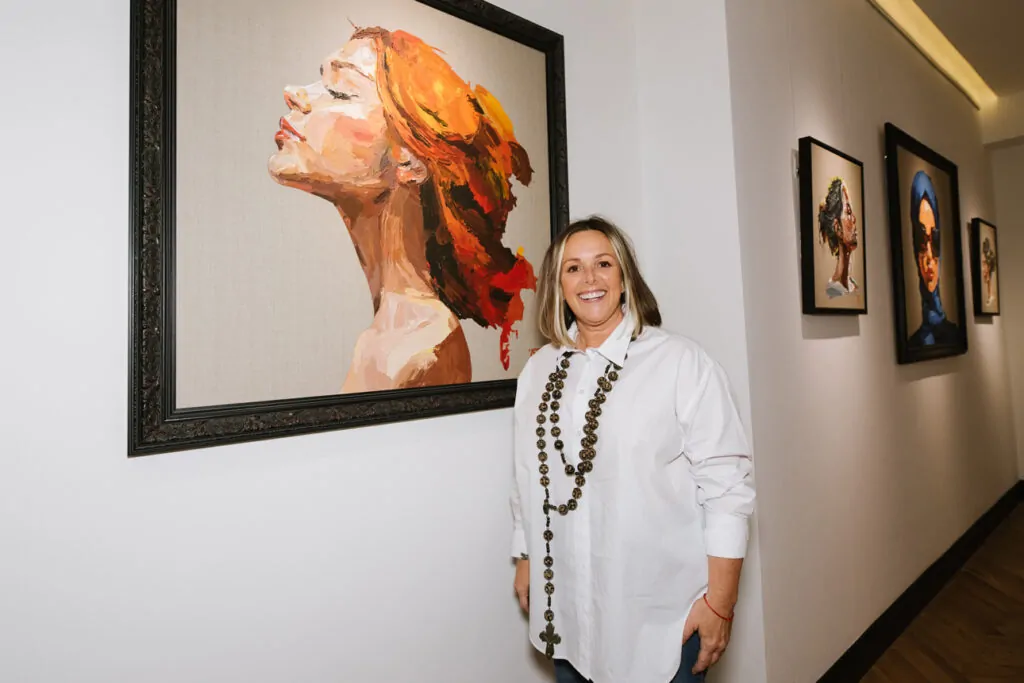
Image courtesy of Grove Gallery
I’ve walked in many shoes, and that personal history gives me a deep well to draw from
Zara Muse
Yet Muse’s path to prominence was anything but conventional. In 2017, her mother, Janet, was diagnosed with cancer. Johnson, then a single mother of two with a successful career in finance, became a full-time carer. “Caring for my mother, who was battling cancer, and raising my children solo left little room for my hobbies,” she has said. When her mother passed away in February 2019, the loss was seismic — a rupture that eventually, through art, became a channel.
Locked down like the rest of the world in 2020, Johnson began to paint again. Slowly at first, and then with urgency. Using only a palette knife and spatula, she began carving her emotions into canvas — vibrant, textured compositions that explore memory, femininity and transformation. Encouraged by her children and cheered on behind the scenes by a cousin, she stepped, finally, into public view.
The art world noticed. Her 2023 debut work, In Her Own Light, sold for £33,750 at Tate Ward Auctions. The Shape of Stillness followed in 2024, closing at £47,500. And yesterday, on the 3rd of April, Muse reached a career-defining milestone: her debut at Bonhams London, where her portrait of Malala Yousafzai, featured in the 20th/21st Century Art Day Sale, sold for £51,200 — a milestone moment for burgeoning artists.
“Yes, Bonhams — it still feels like a dream,” she said. “I chose Malala Yousafzai because, to me, she is such a powerful subject. She represents resilience, bravery, and the kind of strength that I hope to celebrate in my work.”
Muse’s paintings are immediately recognisable: emotionally charged yet restrained, tactile in every sense of the word. Their surfaces — built up in deliberate, expressive layers — refuse polish in favour of presence. “My art is a homage to the resilience and beauty of women,” Muse said in a recent interview — a quietly delivered line that echoes the emotional force of her practice.
In a market that often leans on legacy, Muse’s ascent has been powered not by hype but by heart. Today, Muse is represented by London’s Grove Gallery, with several exhibitions under her belt, and work in Michelin five-star restaurants, design-forward hotels, and private residences across Europe and the Middle East. But for Muse, recognition has never been the end goal — it was all about becoming. We spoke with Muse to learn more about her practice, inspiration and more.
You began your creative life as Zara Muse — a name distinct from Alexandra Johnson. What
emotional or symbolic meaning does that name hold for you? Was it a form of protection,
reinvention, or something else entirely?
Zara Muse: Firstly, it was a protection — my children always think I’m embarrassing! I also just loved the name Zara. I went to school with a girl called Zara and I remember I always wanted to be her — she was the cool, beautiful and clever girl in the class. She was so inspirational to me growing up.
Your mother’s passing in 2019 marked a profound shift in your life. In what ways did grief not
only reshape your inner world but also give rise to the artist within you? Does her presence still
find its way into your studio, your process, your palette?
Zara Muse: My grief was deep — I was incredibly close to my wonderful mum. When she died, it changed me. It made me stronger and more determined. It made me realise that life is precious, so why not try to be more of who I really am and give things a proper go? I know she’s with me every day. She always sends little signs to let me know.
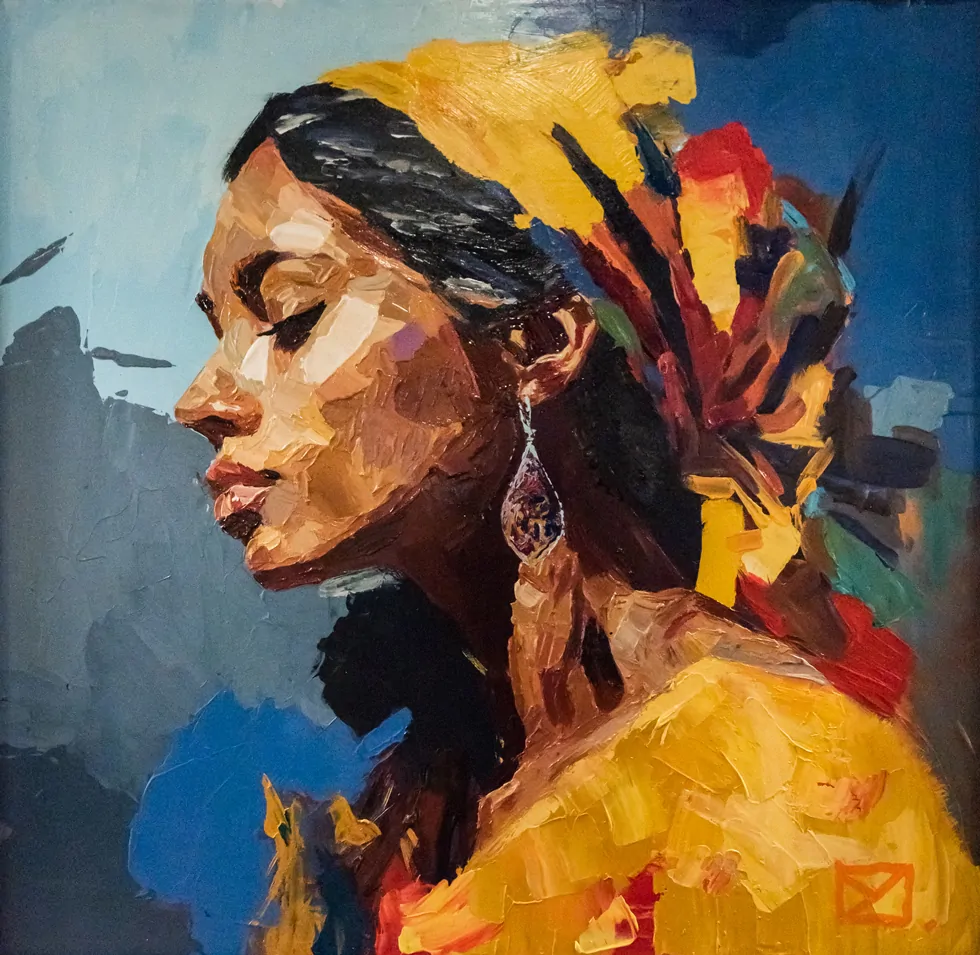
Image of courtesy of Grove Gallery
© Zara Muse
Your choice to work exclusively with palette knives and spatulas gives your paintings a distinct
sculptural depth. What is it about this tactile, almost architectural approach that speaks to you
— and what emotions or stories does it allow you to express that brushes cannot?
Zara Muse: My choice to work with palette knives was instinctive — I love the depth and richness it gives. There’s something about the contours and texture it creates that speaks to me. When I paint a beautiful woman, I want the viewer to see that we are all full of amazing layers. It adds dimension and meaning to every face.
Coming from the high-intensity world of finance and trading, your shift into fine art seems
radical on the surface. But do you see echoes or residues of that earlier life in the way you
approach your practice, or in how others interpret your work?
Zara Muse: My earlier life as a trader was intense — money was my god. That world was hard, fast and often soulless. I’m much softer now. I can’t say that world helps me directly in what I do today, but leaving it behind gave me space to truly find myself.
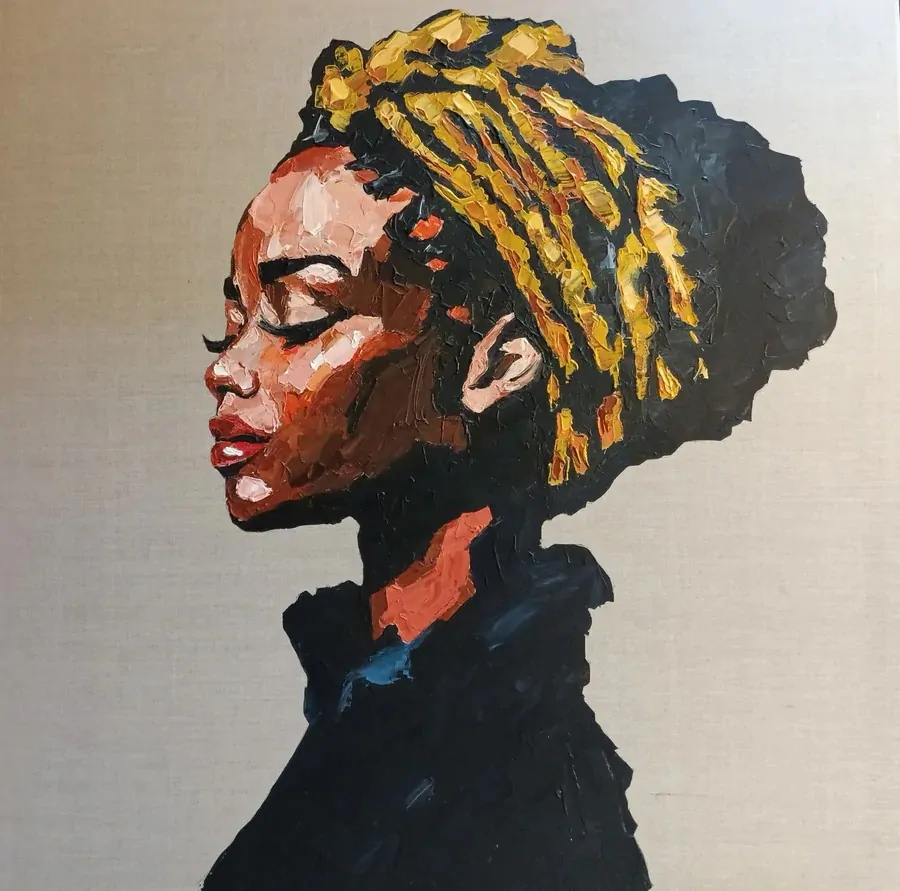
Zara Muse
Image courtesy of Grove Gallery
Your work leans heavily into themes of femininity, emotional complexity, and personal strength.
How do you begin to translate something as intangible as a mood, a memory, or a silent pain
into a visual composition?
Zara Muse: I find women truly extraordinary — we each carry our own stories and tragedies. I’ve walked in many shoes, and that personal history gives me a deep well to draw from when creating compositions. Every brushstroke carries a memory or an emotion I’ve lived.
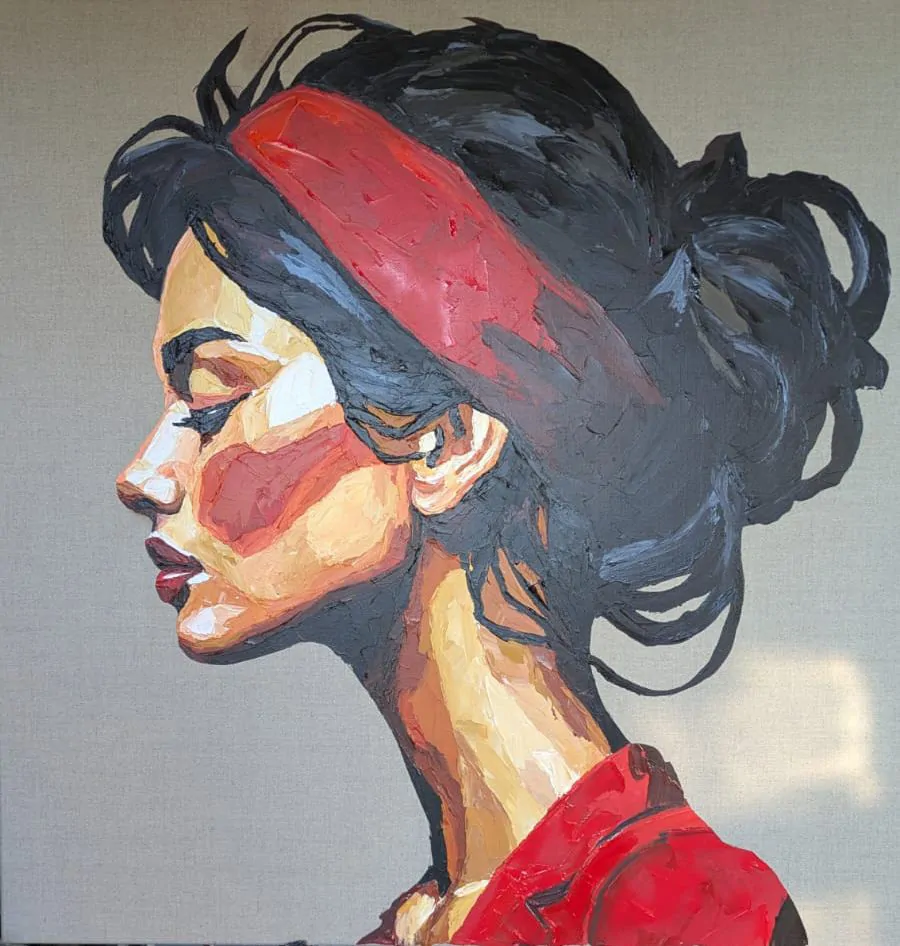
100 x 100
Zara Muse
Image courtesy of Grove Gallery
In a remarkably short span, your works have gone from personal explorations to highly soughtafter assets. How do you hold space for vulnerability and truth in your art while navigating a world that increasingly views it through the lens of value and investment?
Zara Muse: I’ve been able to remain true to myself and to my art because I’m happy with where I am in life. Money is no longer my god, and I no longer have a clouded view of the world. That clarity helps me stay connected to my purpose.
Your upcoming portrait of Malala Yousafzai will debut at Bonhams — an extraordinary moment.
Why did you choose her as a subject, and what deeper themes were you exploring in that
portrait beyond her public image?
Zara Muse: Yes, Bonhams — it still feels like a dream. I chose Malala Yousafzai because to me she is such a powerful subject. She represents resilience, bravery and the kind of strength that I hope to celebrate in my work.
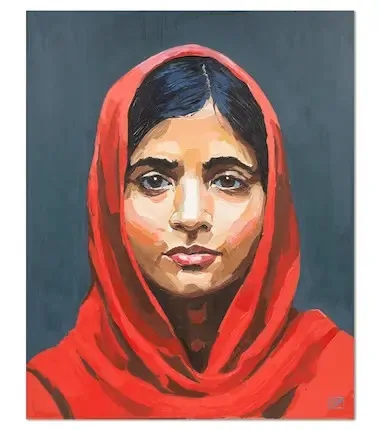
ZARA MUSE
Sold for £51,200 inc. premium
Image courtesy of Grove Gallery
You’re now represented by Grove Gallery, a well-known name in London’s contemporary art
scene. How did that partnership begin, and what has it opened up for you in terms of artistic
freedom, reach, and evolution?
Zara Muse: Once I started painting, the universe seemed to take over. I met James, the owner of Grove Gallery, and from the beginning it felt like we were meant to be in each other’s lives. James has been my biggest supporter and has truly championed my growth as an artist.
Your early artistic influence came from street art and the raw energy of graffiti culture,
In what ways has that environment shaped your sense of visual language, edge, or rebellion — even as your style evolved into something very much your own?
Zara Muse: The graffiti art culture gave me a love of colour — it’s bold, unapologetic, and never afraid. That raw, expressive energy still lives in my work today, even as my style has evolved into something uniquely my own.
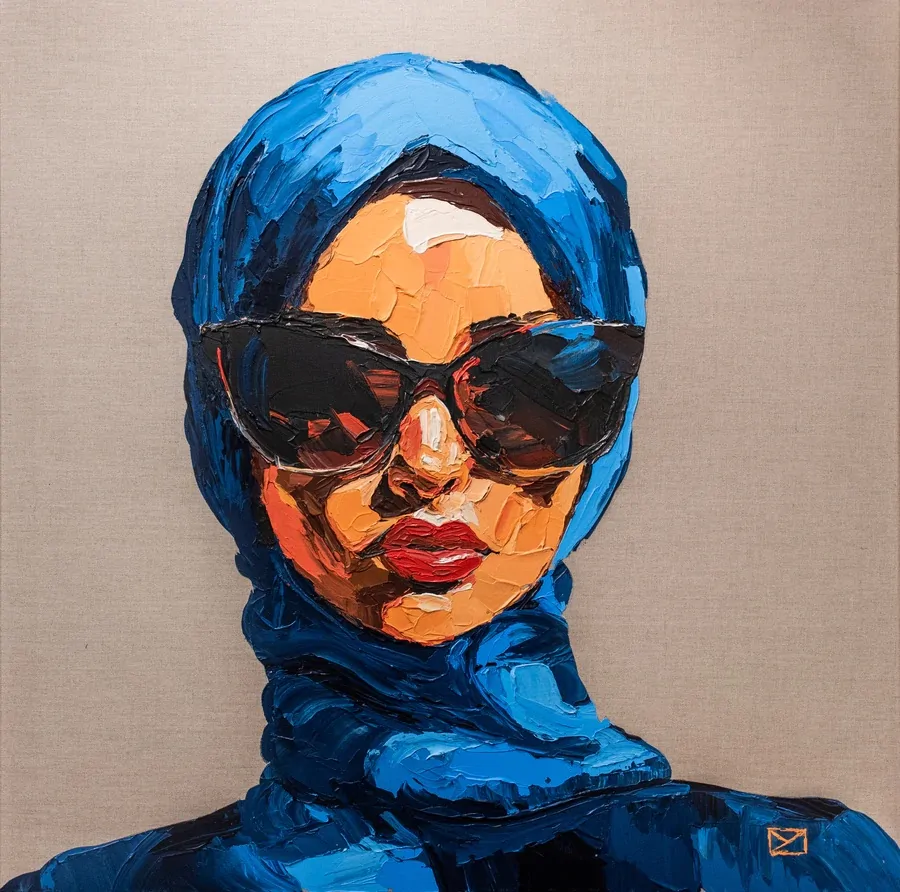
Zara Muse
Image courtesy of Grove Gallery
Since your debut in 2023, your career has accelerated at a breathtaking pace. Amid the shows,
commissions, and collectors, how do you protect the quiet, internal space where the real
creation happens?
Zara Muse: I protect the quiet in my life by practising gratitude daily. I’m always grateful for the small things — that keeps me grounded and connected to the part of myself that creates.
If you could speak to the version of yourself painting alone in her kitchen during lockdown —
unsure, unseen, but still creating — what would you say to her now? What do you think she
would say back?
Zara Muse: If I could speak to myself back then, I’d say: you never know what’s coming. Pick up your palette knife and start making your own story — don’t be afraid. And I think that version of me would say back: wow… you did it.
©2025 Zara Muse


